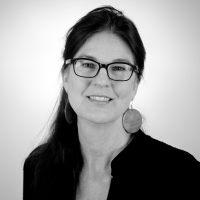BALTEX Assessment of Climate Change for the Baltic Sea Basin: A Science-Policy discussion
- Presentation
- Date
-
- Location
- Tallinn, Estonia
- Chairing
On the occasion of the publication of the second climate report for the Baltic Sea (BACC 2 Report), Dr. Grit Martinez from Ecologic Institute moderated a podium discussion at the International BACC Conference on 7 September 2012 in Tallinn that included representatives from the scientific community, the Helsinki Commission (HELCOM), the Estonian Ministry for the Environment, and the Council of the Baltic Sea States. The discussion focused on the experience with and possibilities for communication and dissemination of recent research findings about climate change in the Baltic Sea region.
BALTEX (The Baltic Sea Experiment) is an international research network for the Baltic Sea region that is primarily concerned with the analysis and modeling of changes in the physical, chemical, and biological Baltic Sea environment arising from climate change.
More than 80 scientists from the Baltic Sea region contributed to the second English-language climate report for the region, which will be published by Springer in 2013 with the title "Assessment of Climate Change for the Baltic Sea Basin" (BACC). With this, BACC has joined in on over 300 years of Baltic Sea research that began in Sweden in the 18th century. At the request of the HELCOM Commission, recommendations for the recreation and sustainable protection of the ecological balance of the Baltic Sea are being drawn from the scientific compendium for the next ministerial meeting of the Baltic Sea riparian states in early 2013.
Despite the expansive, successful work of the Helsinki Commission at the national level, information about the climate-driven impacts and ecosystem changes in the Baltic Sea that is tailored for the needs of local and regional offices, cities, and communities is just beginning to be produced.
During the podium discussion, potential communication channels for and general experience with speaking with both political decision makers and the general public were discussed for regions in the Baltic Sea riparian states. As examples of successful dissemination of basic scientific knowledge, vivid material such as the pocket handbook Baltic Sea Coast in a Change Climate produced by the Helmholtz Center in Geesthacht in 2012 and the factsheets about the climate change impacts in the Baltic Sea region produced by the projects RADOST (Regional Adaptation Strategies for the Baltic Sea Coast) and BALTADAPT were brought up. Additionally, the importance of cooperating and collaborating with regional disseminators was highlighted by the panel participants. For example, the Archbishop in the region around Szczecin, Poland, is also speaking out about the need for environmental education along the Polish Baltic Sea coast. The panel participants were unanimous in their belief that knowledge transfer must be undertaken in the respective languages of each Baltic Sea riparian state and should be anchored in the social and cultural environment of local coastal stakeholders.



